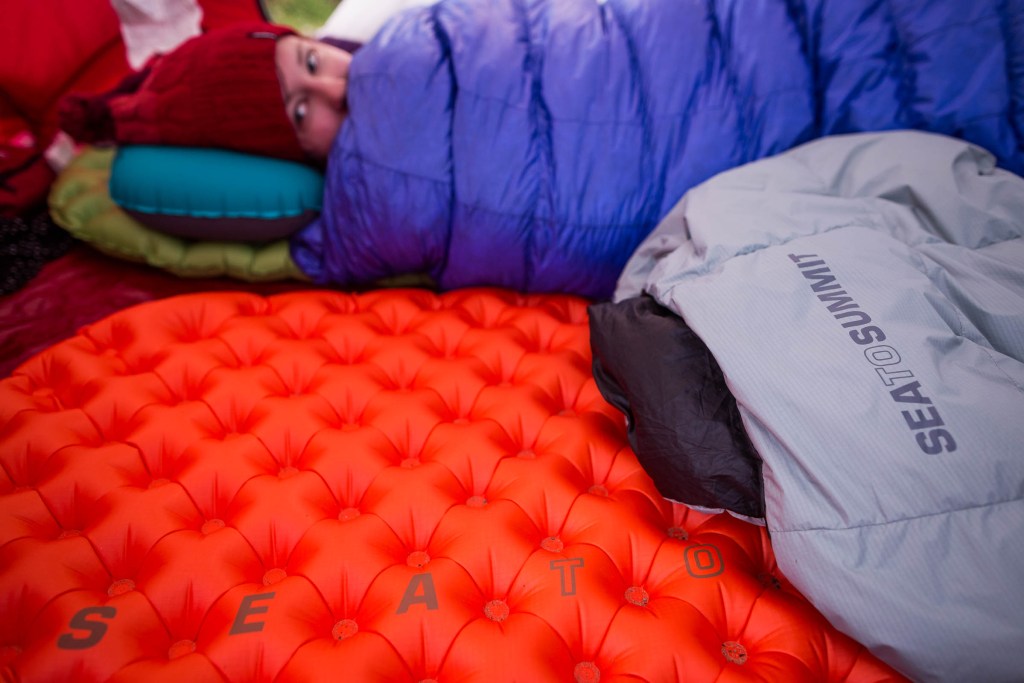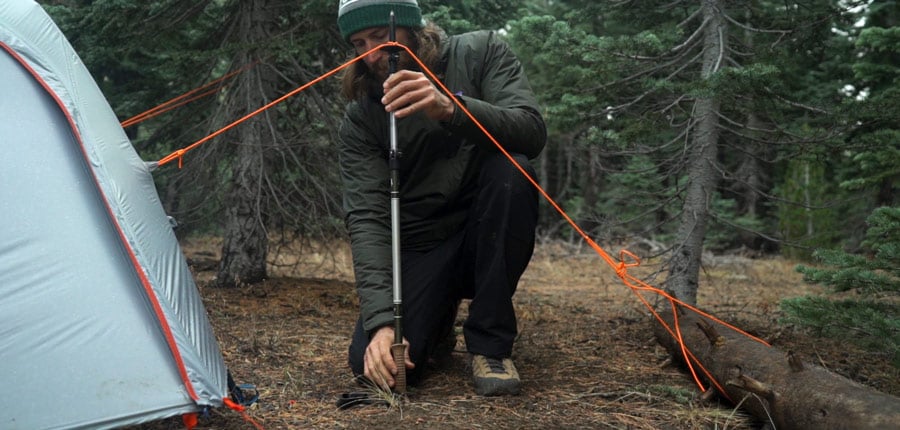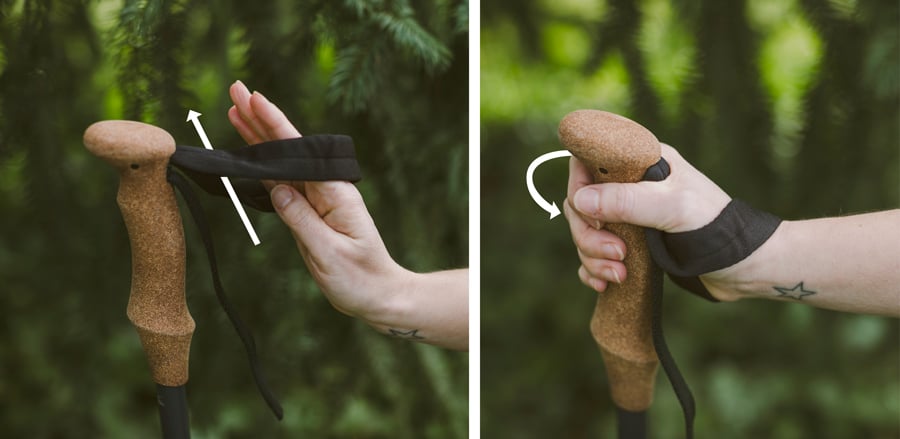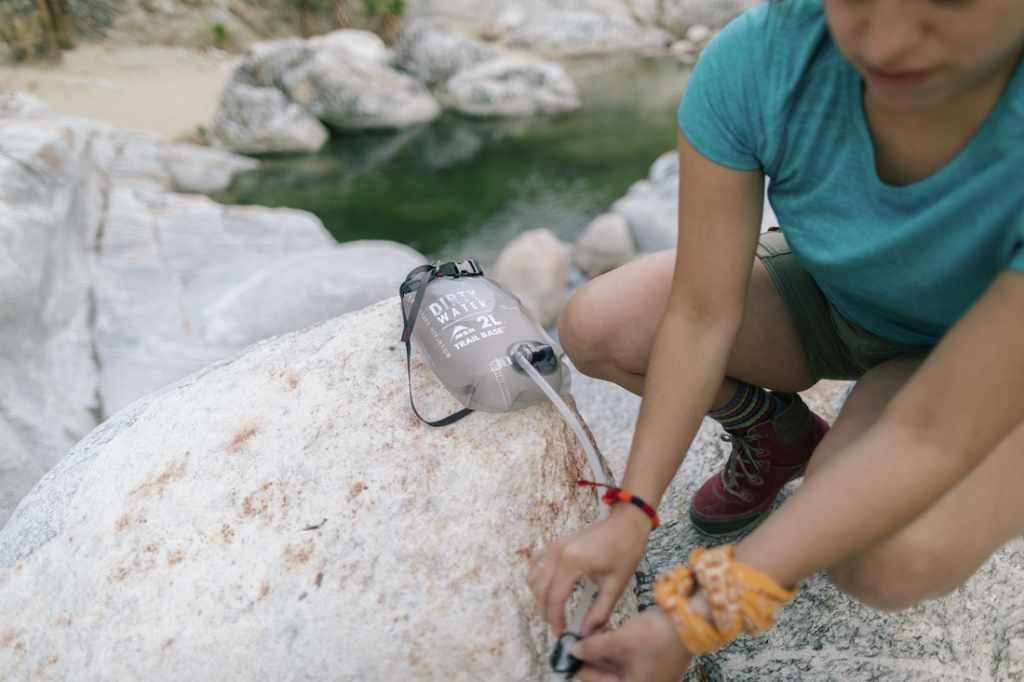After figuring out how to set camp up in under 20 minutes, cook things in the backcountry that actually taste good and manage avoiding blisters while hucking a large pack around, we all feel like backpacking experts. However, there are a few things that can evade even the most skilled backpackers. Check this list and discover how many things you’re doing wrong in the woods.
1. Using your mouth to blow up your sleeping pad.
Moist air conducts heat better than dry air. “Breath contains moisture vapor which will condense, lowering the pressure inside the air pad and increasing the heat loss into the ground,” said Barry Robertson, minister of education at Sea to Summit. Using your mouth to blow up your sleeping pad can cause your sleep system to lose heat to the ground, meaning you might be chilly even on summer nights. If you are using an air pad instead of a self-inflating pad, use a pump.
2. Forgetting to check the insulation value of your sleeping pad.
It’s common to hear backpackers say they’ll be warm enough because their sleeping bag is rated to X degrees. However, “in cooler temperatures, the ground is significantly colder than the air, so it is essential to have sufficient insulation underneath your sleeping bag,” said Barry. You’ll be warm at night if you have a sleeping bag and a sleeping pad that are both rated for the temperatures you’ll encounter. Choose a sleeping pad with an adequate R-value or temperature rating for the conditions you’ll be facing.

Photo courtesy of Sea to Summit.
3. Guying your tent out incompletely.
It’s easy to shrug off the many guylines on your tent. Do you really need those guylines at the bottom and top of your tent? Turns out, yes you do. One of the top mistakes made by backpackers new and experienced is “not guying out your rainfly sufficiently so the condensation actually reaches the mesh,” said Tim Beck, product coordinator at The North Face. Your rainfly is designed to roll condensation down and out of your tent. If the fly touches the mesh, then that condensation is trapped and will rain down on you throughout the night. Learn more about how to set up your tent here.
4. Using small rocks to guy out your tent.
Did you know a 40-mph wind speed creates a pressure of (0.00256 x (40)^2) = 4.096 pounds per square foot? That’s heavy! Tim suggests using rocks much bigger than you think you’ll need. In the case of 40-mph winds, try a five-pound rock.
5. Hammering in your tent stakes at an angle.
After a very controversial email chain here at REI, our tent designers tested this theory out in a wind tunnel. It turns out that tent stakes are strongest when hammered straight into the ground. Another surprising find from that test: Guylines are strongest when perpendicular to the fly wall. If you’re going to be encountering serious winds, run the guyline over the top of a support point, like a trekking pole, making a 90° angle.

6. Keeping your headlamp unlocked.
Did you know that most headlamps have a locking device? Yeah, we were surprised too! Brian Block, business unit director of climbing for Black Diamond North America, said, “Always lock your lamp before putting it back in the pack to guarantee it won’t accidentally turn on and drain your batteries.” Pro tip: Many headlamps also have color indicators that let you know how much battery you have left. Another tip: We think the best place to keep your spare batteries for your headlamp is in an extra headlamp.
7. Not using your trekking pole straps.
They’re really there for a reason. When you use straps you have more stability. How to use them? For each pole, put your hand up through the bottom of the strap and then pull down and grab the grip of the pole. Oh, and make sure your poles are set so that your elbows make a 90° bend. For more trekking pole tips, head to Expert Advice.

8. Dunking your clean water parts with your dirty water parts.
The only way to ensure you don’t get sick drinking backcountry water is by filtering it. The only way to filter it right is by keeping the clean parts clean. Which can be harder than you think! When using a gravity filter, remember to disconnect the filtration hose from your dirty reservoir, or you’re doing it wrong (personal experience, not to be repeated). When using squeeze filters, screw the lid on tight to avoid dirty water seeping out of the top of the reservoir and into your clean water bottle.

9. Tying your shoes like your parents taught you.
Tie your bunny ears into an X. Right? Wrong. Lacing your shoes the way adults told you when you were a kid does the trick in town, but on the trail we have three ways to lace up that you’ll want to remember:
- Surgeon’s Knot: Simple and versatile, it can keep your heel from slipping.
- Window Lacing: Alleviates pressure points on the top of your foot.
- Toe-Relief Lacing: A stopgap remedy to get you back to the trailhead.
